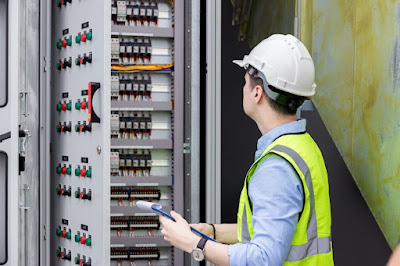India Electrical Testing Services: Ensuring Safety and Quality
 |
| India Electrical Testing Services |
The electrical industry in India has
grown leaps and bounds in the last few decades. With rising urbanization and
industrialization, the needs for electricity and electrical infrastructure have
increased manifold. However, with this growth comes the responsibility to
ensure the electrical installations and equipment being used are completely
safe and meet all quality standards. This is where electrical testing services
in India play a crucial role.
Importance of Electrical Testing
Electricity is indispensable in today's world but it can also be extremely
dangerous if the electrical installations and equipment are not properly tested
and certified. Electrical faults and failures can lead to fires, electric
shocks or even loss of life. Regular testing helps identify any flaws, defects
or non-compliances at an early stage before they manifest into bigger issues.
It evaluates the performance, safety and reliability of the electrical system.
Given below are some of the key reasons
why electrical testing is so important:
Safety: Testing helps reduce risks of electric shock, short circuits or fires
that can endanger lives and property. India
Electrical Testing Services ensures equipment meets all safety
standards.
Maintenance: Periodic testing helps pinpoint areas that need repair or
replacement before breakdown. This allows for planned maintenance and avoidance
of unscheduled outages.
Quality Assurance: It acts as a quality control measure to check if
installations adhere to specifications and design parameters even after years
of use.
Peace of Mind: Regular testing provides assurance that the electrical system is
functioning properly and maintains confidence in its performance over time.
Compliance: Many organizations and facilities are legally bound to get periodic
electrical inspections and safety audits done as per regulations. Testing helps
comply with these mandatory requirements.
Insurance Purpose: Several insurers make electrical safety audit reports a
prerequisite for insurance or renewal. Testing reports are proof that due
diligence is followed.
Types of Electrical Testing Services
Given the importance, several electrical testing service providers have come up
across India offering a wide range of testing solutions to various customers.
Some of the commonly available testing types include:
Installation Testing: Done after initial completion of any electrical installation
to check compliance with specifications before energizing.
Pre-commissioning Testing: More exhaustive tests conducted before equipment is
commissioned for use to certify its readiness.
Post-maintenance Testing: Tests performed after any repair or modification work
to validate work quality before restarting operations.
Condition Monitoring: Continuous online monitoring of critical switchgears to
continuously track their health status.
Infrared Testing: Uses infrared camera to detect high resistance joints, loose
terminations or overheating likely to lead to faults.
Earth Testing: Ensures proper earthing and bonding is in place for safety and
to dissipate over-current safely.
High Voltage Testing: Uses high voltage generators for more rigorous testing of
switchyards, substations or transmission lines.
Energy Auditing: Analyzes energy consumption patterns, diagnoses inefficiencies
and recommends improvements.
Many companies also offer specialized lab testing of electronic equipment,
cables, transformers or circuit breakers to validate their technical compliance
and life expectancy. The range of testing helps meet various needs from
domestic to industrial and commercial installations.
Regulatory Compliance and Standards
All electrical testing services need to adhere to existing regulations and
conform to national or international standards for the test results to be valid
and accepted. In India, the scope and periodicity of electrical inspections are
governed by the Indian Electricity Rules 1956 framed under the Electricity Act
2003.
The Bureau of Indian Standards (BIS) has published various codes that outline
approved test methods for different types of electrical equipment and
installations. Key standards include IS 3043 for code of practice for earthing,
IS 694 for PVC insulated cables, IS 1255 for MV switchgear, etc. Compliance
with these standards is mandatory for businesses selling or servicing
electrical products.
Established testing service providers employ certified technicians trained in
standard test procedures. They use standardized template reports, calibrated
instruments and follow strict QA/QC protocols to issue certification.
Authorized technicians can inspect installations on behalf of electrical
inspectors. The test documentation serves as an important compliance record.
In line with the increasing scale and complexity of installations as well as
growing safety awareness, the demand for associated electrical testing services
has grown significantly over the last decade. It is projected to be a $1
billion industry within 5 years. Apart from large utilities, inspection is
gaining traction in industrial sectors like oil & gas, steel, cement as
well as commercial buildings.
Key service providers strive to offer pan-India presence and consistency in
audits through franchisee networks, mobile vans and online management systems.
The service market benefits from evolving regulations emphasizing mandatory
inspections across sectors. With a potential rise in compliance checks post
recent accidents, this trend is expected to boost the testing industry further
in future.
Get More Insights on India Electrical Testing Services



Comments
Post a Comment